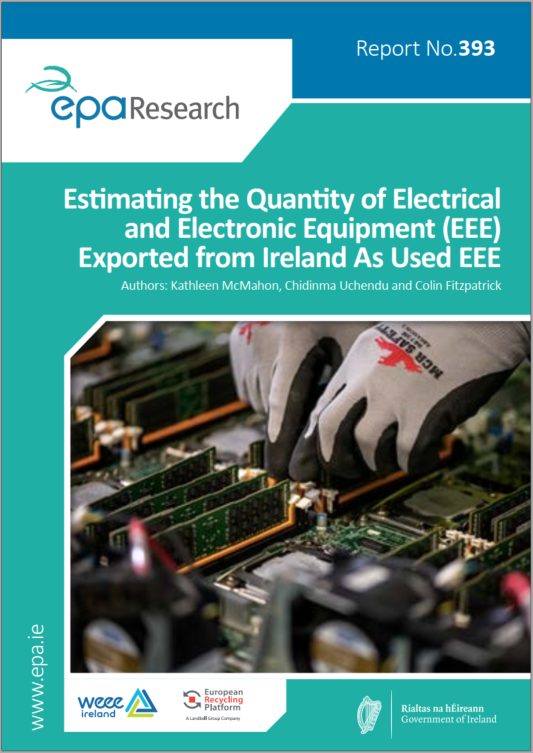
Authors: Kathleen McMahon, Chidinma Uchendu and Colin Fitzpatrick, October 2021
Year: 2021
Ireland has met or exceeded collection and recovery targets for waste electrical and electronic equipment (WEEE) in recent years. However, as targets have risen, Ireland’s stakeholders must identify and address challenges presented by WEEE that does not arise in collection. This research identifies two pathways by which UEEE is exported for the purpose of reuse, namely through the shipment of roll-on roll-off vehicles and through the shipment of professional IT equipment, and it aims to quantify the amount of UEEE exported through each pathway.
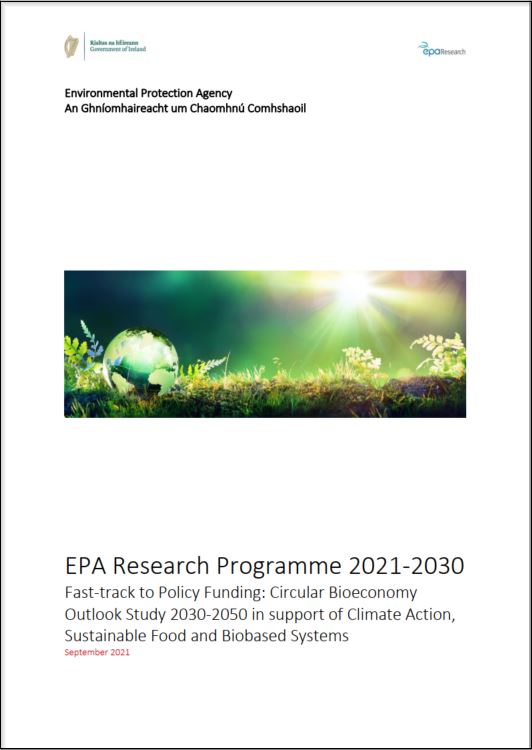
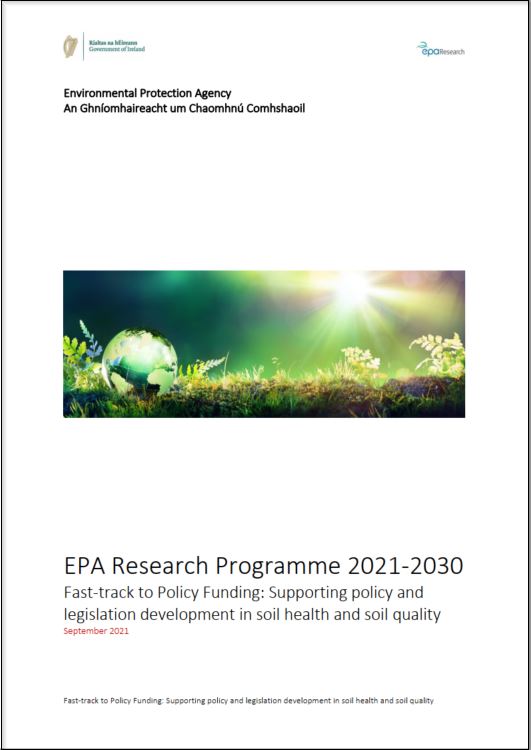
Call 2021-03, September 2021
Year: 2021
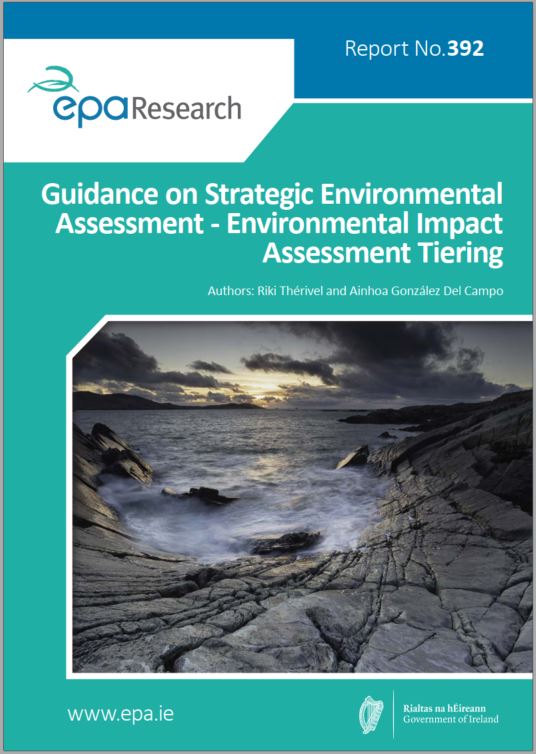
Authors: Riki Thérivel and Ainhoa González Del Campo, September 2021
Year: 2021
This Guidance on SEA-EIA Tiering aims to improve the links between SEA and EIA, using a range of good practice examples. It focuses on improving communication between SEA and EIA: getting SEA practitioners to write SEAs with EIAs in mind, and EIA practitioners to refer to SEAs in their EIA Reports. It also identifies institutional issues that can set a context which restricts tiering, including ‘silo assessment’, lack of training, and restrictive legal requirements.
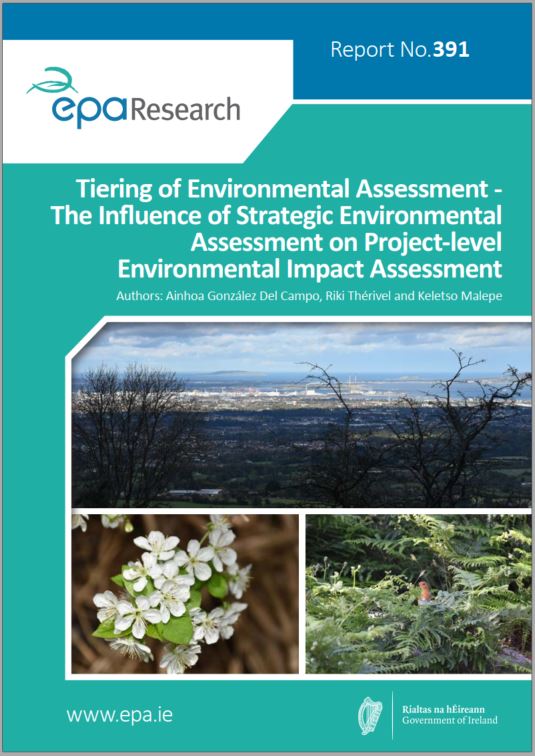
Authors: Ainhoa González Del Campo, Riki Thérivel and Keletso Malepe, September 2021
Year: 2021
Strategic Environmental Assessments (SEAs) aim to identify and mitigate environmental impacts resulting from the implementation of plans and programmes before they are adopted. This research was based on a literature review, interviews with 28 international and Irish experts, and a review of 19 Irish case studies. The research identified a range of good practice approaches to impact assessment tiering, which can be summarised as better communication between SEA and EIA practitioners.
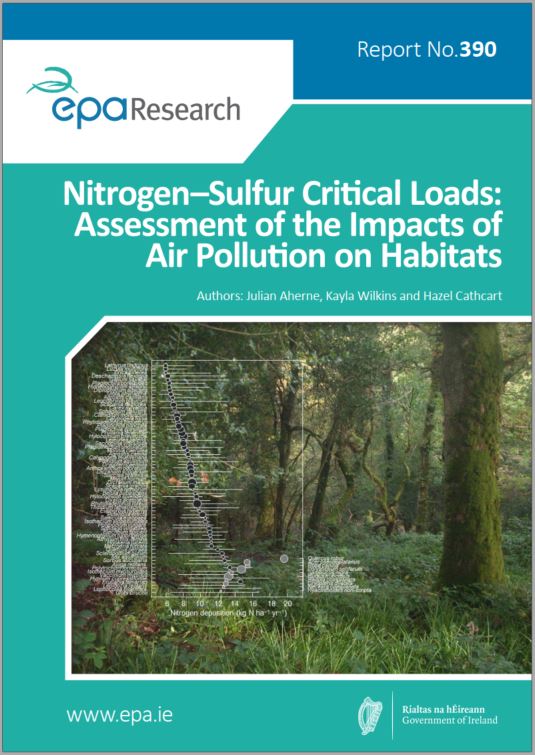
Authors: Julian Aherne, Kayla Wilkins and Hazel Cathcart, September 2021
Year: 2021
Air pollution can have unacceptable impacts on the natural environment. In particular, elevated atmospheric nitrogen deposition can result in changes to the plant communities of natural and seminatural ecosystems, resulting in decreases in plant biodiversity. This project developed empirical critical loads of nutrient nitrogen for 17 Annex I habitats. The project analysis suggests that habitats within the Atlantic biogeographic region have critical loads at the low end or lower than existing UNECE recommended ranges for European habitats.
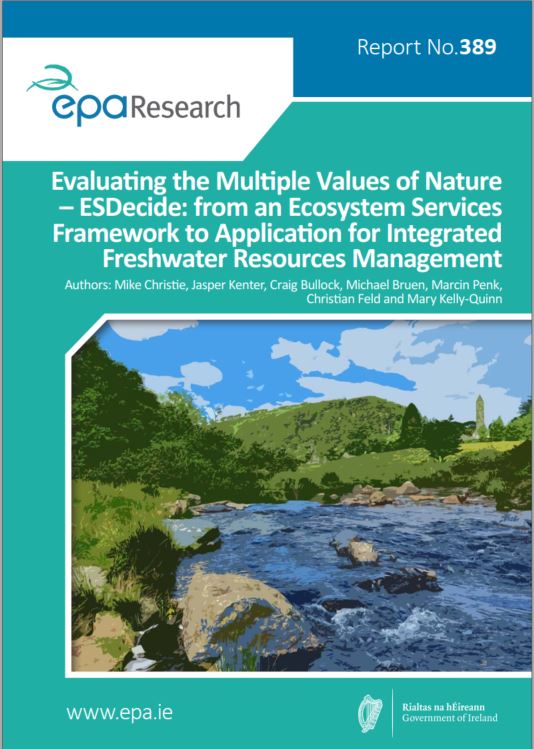
Authors: Mike Christie, Jasper Kenter, Craig Bullock, Michael Bruen, Marcin Penk, Christian Feld and Mary Kelly-Quinn, August 2021
Year: 2021
The Water Framework Directive requires the EPA to monitor the quality of water in Ireland’s rivers and lakes. This research reviewed the multiple values and benefits of nature, often termed ‘ecosystem services’ or’ nature’s contributions to people (NCPs)’. It provides insights into the multiple ways people value rivers and associated ecosystem services/ NCPs. The research also developed a decision support tool to assess the impacts on ecosystem services/NCPs of alternative river catchment measures.
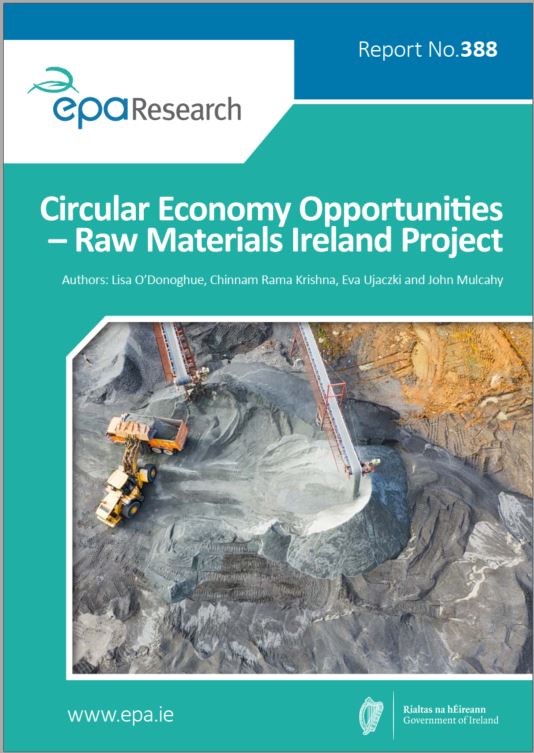
Authors: Lisa O’Donoghue, Chinnam Rama Krishna, Eva Ujaczki and John Mulcahy, August 2021
Year: 2021
Ireland is home to primary industries in mining, materials processing and power generation. Today, most waste outputs associated with these industries are either sent for disposal or exported. The research focused on techniques for mechanical and physical separation, to unlock valuable materials such as iron, aluminium, calcium and critical raw materials (gallium, indium and phosphorus).
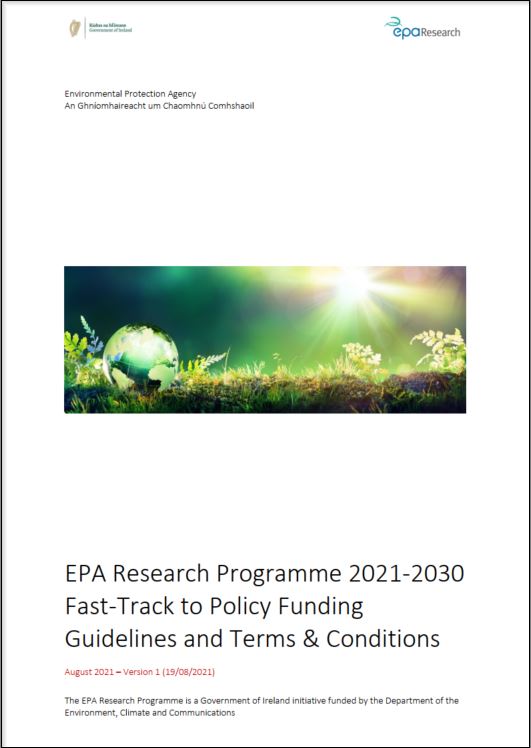
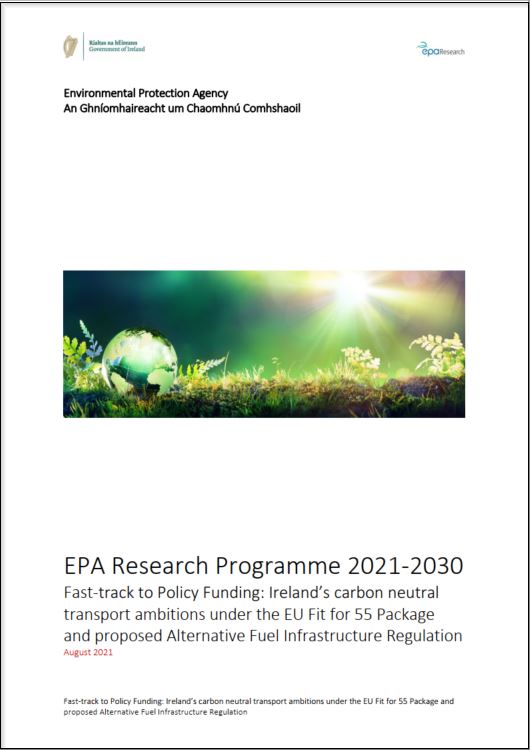
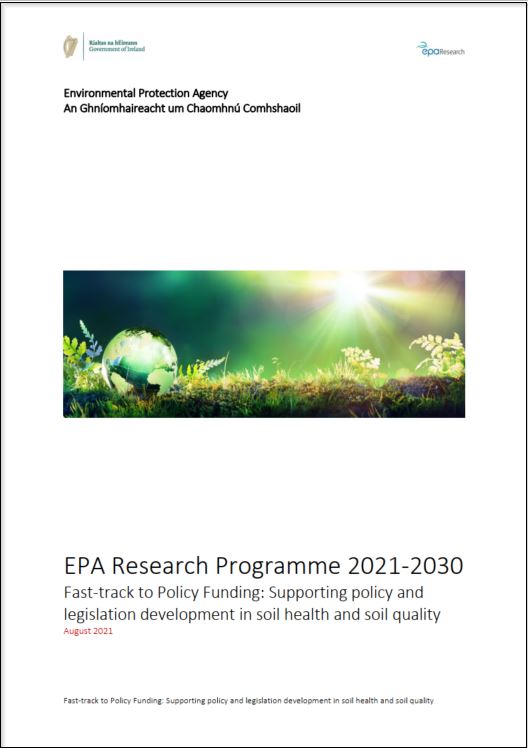
Call 2021-01, August 2021
Year: 2021
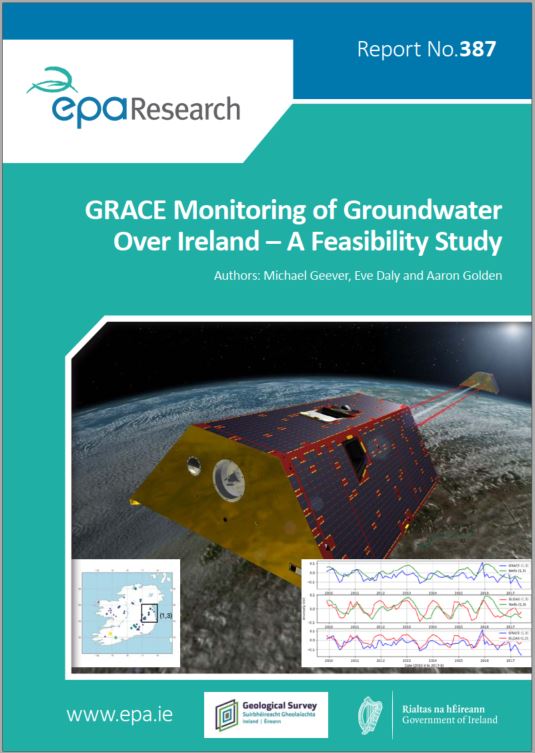
Authors: Michael Geever, Eve Daly and Aaron Golden, August 2021
Year: 2021
Changing population trends, growing urbanisation and associated economic development increase pressure on our water resources. This project investigates the feasibility of using space-based observations of gravitational anomalies, obtained by NASA’s Gravity Recovery and Climate Experiment (GRACE), to assess groundwater variations at a regional level across the island of Ireland. The report fully documents ways of accessing, processing and visualising GRACE gravitational anomaly data, and outlines a means to integrate data from NASA’s land surface model with data from the EPA’s HydroNet groundwater well network.
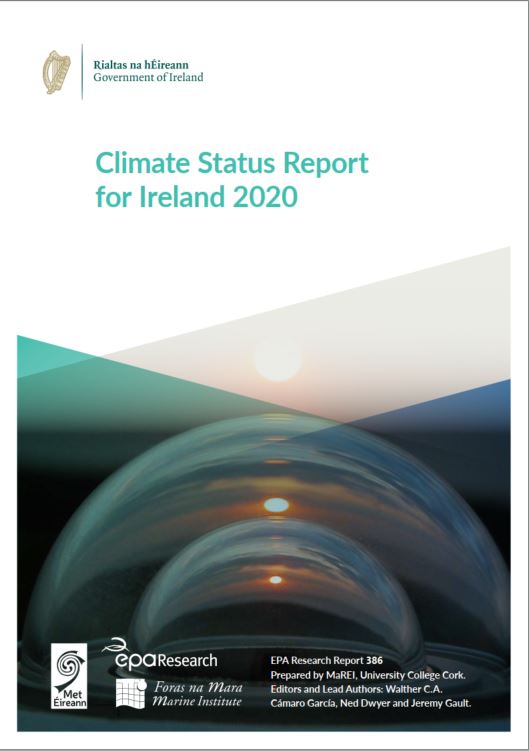
Editors and Lead Authors: Walther C.A. Cámaro García and Ned Dwyer, August 2021
Year: 2021
As an island on the western boundary of Europe facing the Atlantic Ocean, Ireland is ideally positioned to measure and assess ongoing climate change. The first Status of Ireland’s Climate report was published in 2013. This second status report provides an update, incorporating new datasets and analyses as well as reporting ongoing climate observations over the last 7 years.
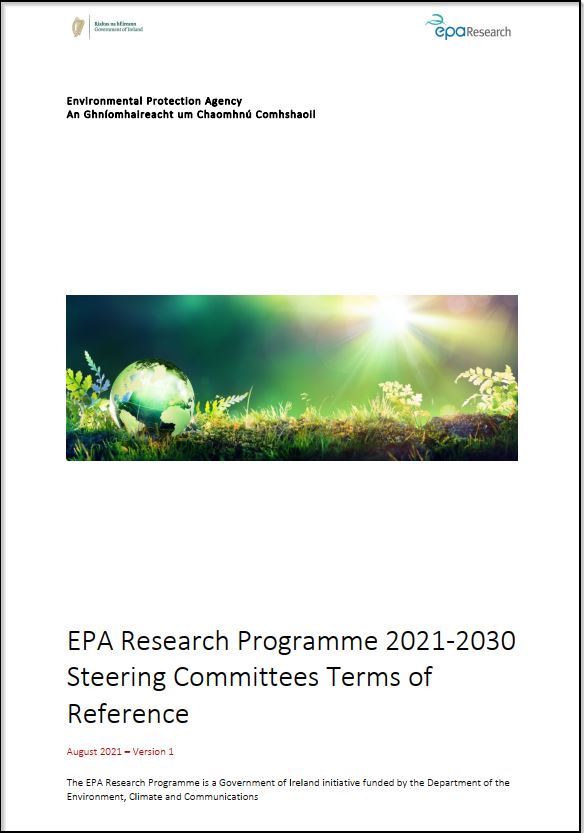
Year: 2021
EPA Research Steering Committee Terms of Reference
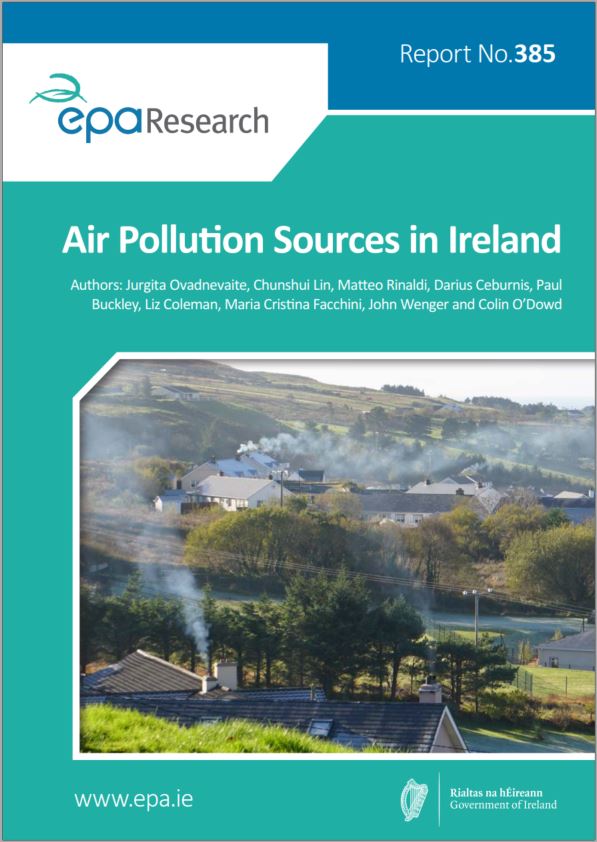
Authors: Jurgita Ovadnevaite, Chunshui Lin, Matteo Rinaldi, Darius Ceburnis, Paul Buckley, LizColeman, Maria Cristina Facchini, John Wenger and Colin O’Dowd, July 2021
Year: 2021
The project successfully established the AEROSOURCE network, comprising three sophisticated aerosol mass spectrometer nodes positioned in strategic locations: Carnsore Point (regional background), Dublin (urban environment) and Mace Head (marine background). It enhanced the National Transboundary Air Pollution Network with near real-time aerosol chemical speciation (including organic matter) and source apportionment capabilities.
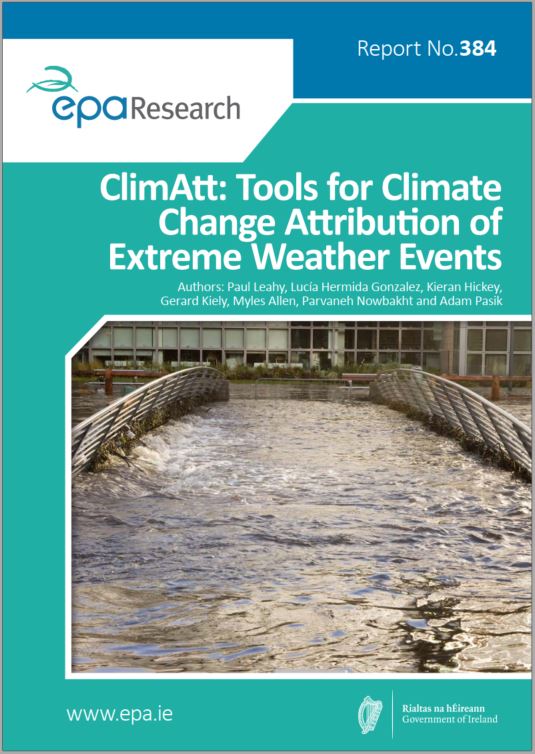
Authors: Paul Leahy, Lucía Hermida Gonzalez, Kieran Hickey, Gerard Kiely, Myles Allen, Parvaneh Nowbakht and Adam Pasik, July 2021
Year: 2021
Extreme weather events, such as heavy or prolonged rainfall events, droughts and heatwaves, have the potential to cause significant social and economic disruption in Ireland. The ClimAtt project has examined the state of the art in climate change attribution of extreme weather events. Met Éireann’s observational records have been used to test and validate several climate model datasets for attribution purposes. The most appropriate datasets and methods to use to investigate the influence of climate change on extreme weather events occurring in Ireland have been recommended.
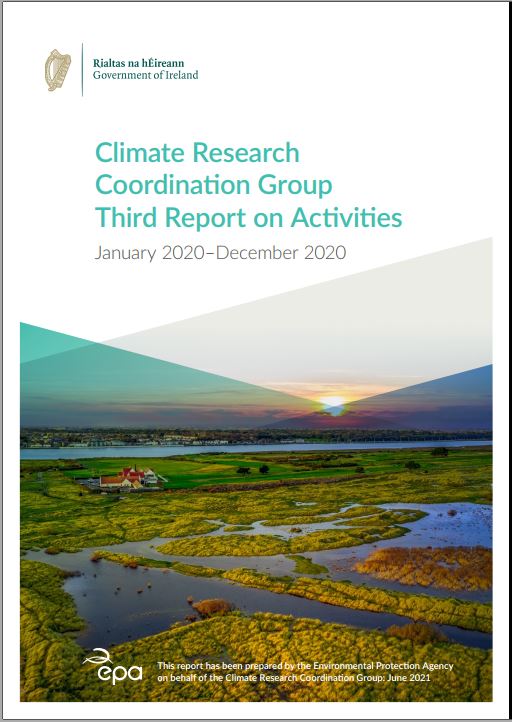
This report has been prepared by the EPA on behalf of the Climate Research Coordination Group, July 2021
Year: 2021
This third report presents a summary of the Climate Research Coordination Group’s activities in 2020.
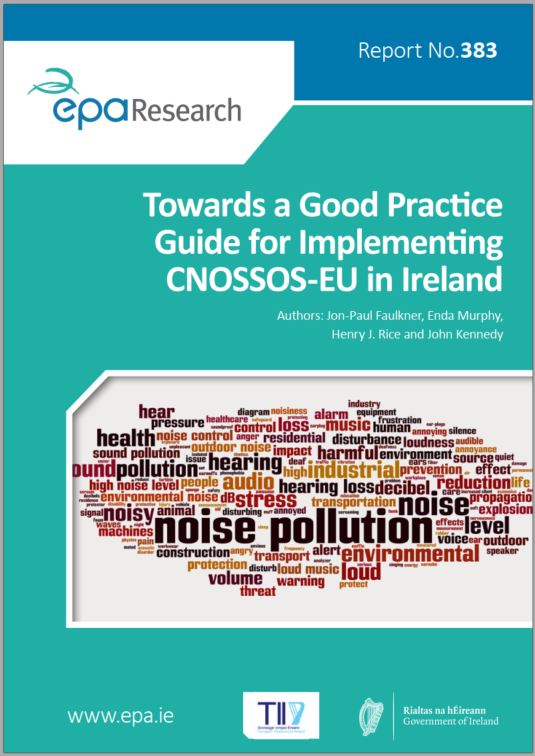
Authors: Jon-Paul Faulkner, Enda Murphy, Henry J. Rice and John Kennedy, June 2021
Year: 2021
This guide addresses noise pollution from transport as a significant environmental pressure and public health concern. The guide is primarily targeted at practitioners charged with implementing the 5-yearly strategic noise mapping requirements of the Environmental Noise Directive (END). The guide also supports relevant authorities by providing robust analysis and instruction on how to implement strategic noise mapping under CNOSSOS-EU.
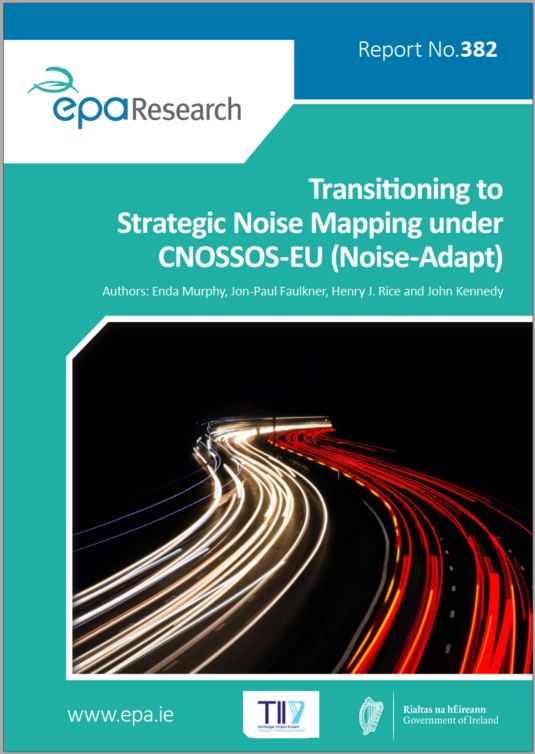
Authors: Enda Murphy, Jon-Paul Faulkner, Henry J. Rice and John Kennedy, June 2021
Year: 2021
In the European Union (EU), 113 million people are estimated to be exposed to noise pollution from transport sources and this is detrimental to their health and quality of life. This report addresses noise pollution from transport as a significant environmental pressure and public health concern by providing recommendations that assist with the practical implementation of revisions to the Environmental Noise Directive.
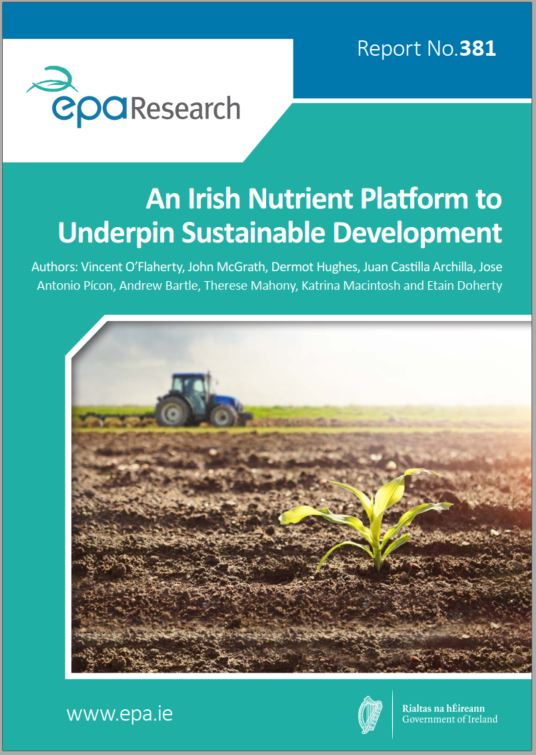
Authors: Vincent O’Flaherty, John McGrath, Dermot Hughes, Juan Castilla Archilla, Jose Antonio Pícon, Andrew Bartle, Therese Mahony, Katrina Macintosh and Etain Doherty, June 2021
Year: 2021
The UN Agenda for Sustainable Development consists of 17 Sustainable Development Goals (SDGs), underpinned by 169 targets, which aim to “end poverty, protect the planet and ensure prosperity for all”. These SDGs are expected to frame national policy agendas over the next 15 years in the context of both domestic and international policy, with an overarching desire to link environmental sustainability to sustainable economic development and the recognition that the management and protection of the environment are vital to economic wellbeing and a healthy society.